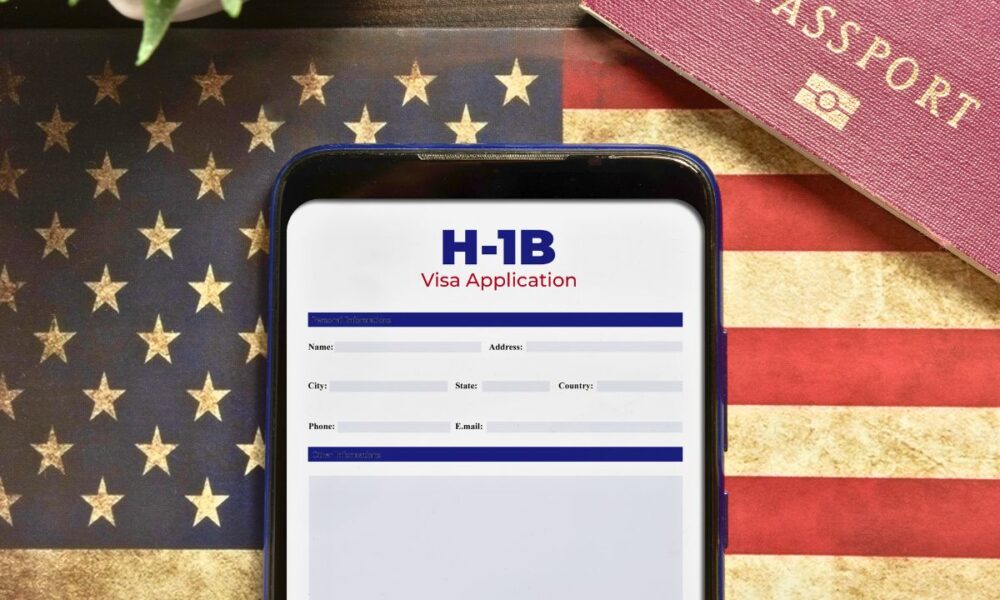President Donald Trump’s surprise order imposing a $100,000 fee on new H-1B visa petitions sparked panic and uncertainty this weekend, before White House officials clarified that the charge would apply only once and only to new applicants.
The proclamation, issued on September 19, stated that foreign workers seeking H-1B specialty occupation visas could not enter the United States unless their petition was “accompanied or supplemented by a payment of $100,000.” Commerce Secretary Howard Lutnick told reporters during an Oval Office briefing the same day that the cost would be an annual fee, repeating the point several times.
On September 20, White House Press Secretary Karoline Leavitt posted on X:
To be clear:
1.) This is NOT an annual fee. It’s a one-time fee that applies only to the petition.
2.) Those who already hold H-1B visas and are currently outside of the country right now will NOT be charged $100,000 to re-enter.
H-1B visa holders can leave and re-enter the…
— Karoline Leavitt (@PressSec) September 20, 2025
Her clarification came after social media users flagged Lutnick’s earlier comments, with one widely shared clip showing the commerce secretary describing the fee as annual.
The White House fact sheet framed the measure as a step to “curb abuses that displace U.S. workers and undermine national security.” It said the policy directs the Departments of Homeland Security and Labor to enforce compliance and revise wage rules to prioritize higher-skilled H-1B workers.
In the hours after the proclamation, however, confusion rippled across industries and among foreign workers. Frantic visa holders scrambled abroad and cut vacations, reportedly rushing back to the United States over fears they could face penalties for re-entry if they did not return quickly, a report from NBC indicated. Companies such as Microsoft, Amazon, and Goldman Sachs circulated urgent travel advisories, according to the report.
India’s government reportedly warned that the measure could have “humanitarian consequences by way of the disruption caused for families,” while South Korea also said it was closely monitoring the situation. Every year, around 72% of the visas go to workers from India and 12% to those from China, the latest federal data shows.
U.S. employers could face a $14 billion annual bill if the $100,000 charge were applied to the roughly 141,000 new H-1B visas issued each year, according to calculations from the Financial Times. Lawyers cited by the outlet suggested the move could face legal challenges, arguing the administration may have overstepped its regulatory authority.
An analysis from the Center for Immigration Studies noted that employers would likely only have to pay the fee once per worker, who could then remain in H-1B status for up to six years. It concluded that while companies may seek ways to avoid the charge, the measure “would not be unreasonable amounts for employers to pay for those H-1B workers who truly are ‘the best and the brightest.’”
Critics have frequently noted that the H-1B visa program has exerted downward pressure on wages. A 2025 Fact Sheet that from the The Department for Professional Employees, an AFL-CIO affiliate, asserted “Employers can and do underpay H-1B workers,” noting that in FY 2019, 60% of H-1B positions were paid at the two lowest federally permissible wage levels.
Supporters of the policy change argue that the steep price will deter companies from filing speculative or excessive visa petitions and help ensure that only highly skilled foreign workers—those who Americans cannot easily replace—are admitted under the program.
Taylor Rogers, a White House spokeswoman, told NBC the step “gives certainty to American businesses who actually want to bring high-skilled workers to our great country but have been trampled on by abuses of the system.”
The proclamation is set to take effect with the next H-1B lottery cycle and includes limited waiver authority for cases deemed in the national interest.


